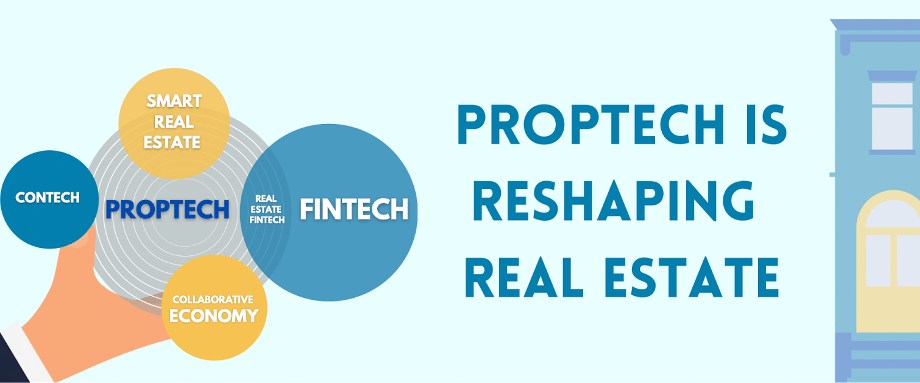Author: Aditi Somayajula, Graphics: Nina Tagliabue
The BRB Bottomline
The real estate market is among the last to become tech savvy. But in the current housing bubble, we are finally witnessing a shift. Enter proptech: technology startups that are poised to transform the real estate space.
In what was forecasted to be a year universally bad for business, the American housing market challenged expectations and surged. It’s an unprecedented situation that can likely be attributed to a few independent factors: historically low mortgage rates, renewed optimism in the market due to reopening measures, and the fact that we are currently in the prime homebuying years of millennials. Sensing a perfect storm for an active housing market, technology companies hoping to transform the home buying and selling landscape are eager to capitalize.
A Case for Proptech
For decades, the nature of the American housing ecosystem has been resistant to change. But rather than serving as a testament to the efficiency of the business model, this is likely due to the system being composed of entrenched players. Defined by layers upon layers of middlemen, from bankers to mortgage brokers to real estate agents, the home buying and selling process is known to be tedious and complicated. But despite the inefficiencies, the system is highly profitable, with nearly 5.7 million houses being sold in 2020. Unsurprisingly, therefore, the incentive to change the existing business model is slim.
This leaves disrupting the industry to the little companies in the real estate space. From FICO scores to employment records, tremendous amounts of individual data that can be found online allow technology companies to construct digital financial profiles of their clients, eliminating the traditional need for middlemen to compile the same information. In an industry where nearly every facet has been relatively untouched by technology savvy, the opportunities to reinvent the system are numerous.
And although the transition to a more digitized housing industry was likely inevitable, the onset of the pandemic early last year may have catapulted real estate startups to the frontline ahead of their time. This is a trend that we have observed across many sectors during COVID-19—the general shift towards an online marketplace has created surges in profit for e-commerce and video conferencing companies. Nearly two years into the pandemic, we seem to be witnessing that same trend extend towards real estate.
Ones to Watch
Enter Opendoor, Better, and Doma—three real estate companies that are attempting to streamline different avenues of home buying and selling.
Opendoor
A housing marketmaker in some sense, San Francisco-based Opendoor eliminates the need of hiring a real estate agent during the home selling process. Their business model consists of making immediate cash offers on homes and shouldering the listing and reselling process themselves. But while the TAM of Opendoor presents a massive opportunity, as the housing market is illiquid, playing marketmaker with housing is a different ballgame than playing marketmaker with stocks. It’s an unproven model whose profitability remains to be seen.
Better
Based in New York, Better Mortgage is a digital mortgage lender that offers mortgage pre-approvals within minutes via an algorithm that matches prospective borrowers with investors. Within days, Better provides customers with a loan, interest rate, and monthly payment estimate. In contrast to traditional brick and mortar mortgage lenders, Better does not charge application or commission fees.
Doma
Primarily operating in the title insurance business, San Francisco-based Doma aims to streamline aspects of the legal process that may arise during property buying and selling. Specifically, Doma hopes to replace the standard back-office search of county records for property liens and other legal conflicts with analytics and intelligence algorithms.
A Potential Investment Opportunity
As real estate startups continue to reconcile the inefficiencies of the real estate market with new technologies of the digital age, big winners will likely emerge from the fray of startups. While these companies’ models are somewhat of an experiment in the housing industry, there exists massive opportunity for both the startup and the investor alike. For patient investors who can tolerate some volatility, real estate startups may be ones to watch.
And for future homebuyers and sellers, proptech startups may offer some helpful assistance in navigating the real estate process in a pandemic world. In many aspects, it is clear that large-scale change is waiting to happen and we may just be at the very beginning of a new approach to real estate.
Take-Home Points
- For decades, the real estate industry has been relatively resistant to technological change as, despite the inefficiencies, current means of home buying and selling are highly profitable.
- The pandemic has accelerated technological change in the real estate space as many transactions have shifted to an online marketplace.
- Proptech startups, tech startups in the real estate space, are aiming to streamline different aspects of home buying and selling, from mortgage lending to title insurance.
- Proptech appears to be an attractive investment opportunity, especially for those who can tolerate some turbulence.


Howdy! This is kind of off topic but I need some help from an established blog. Is it very difficult to set up your own blog? I’m not very techincal but I can figure things out pretty quick. I’m thinking about creating my own but I’m not sure where to start. Do you have any tips or suggestions? Many thanks